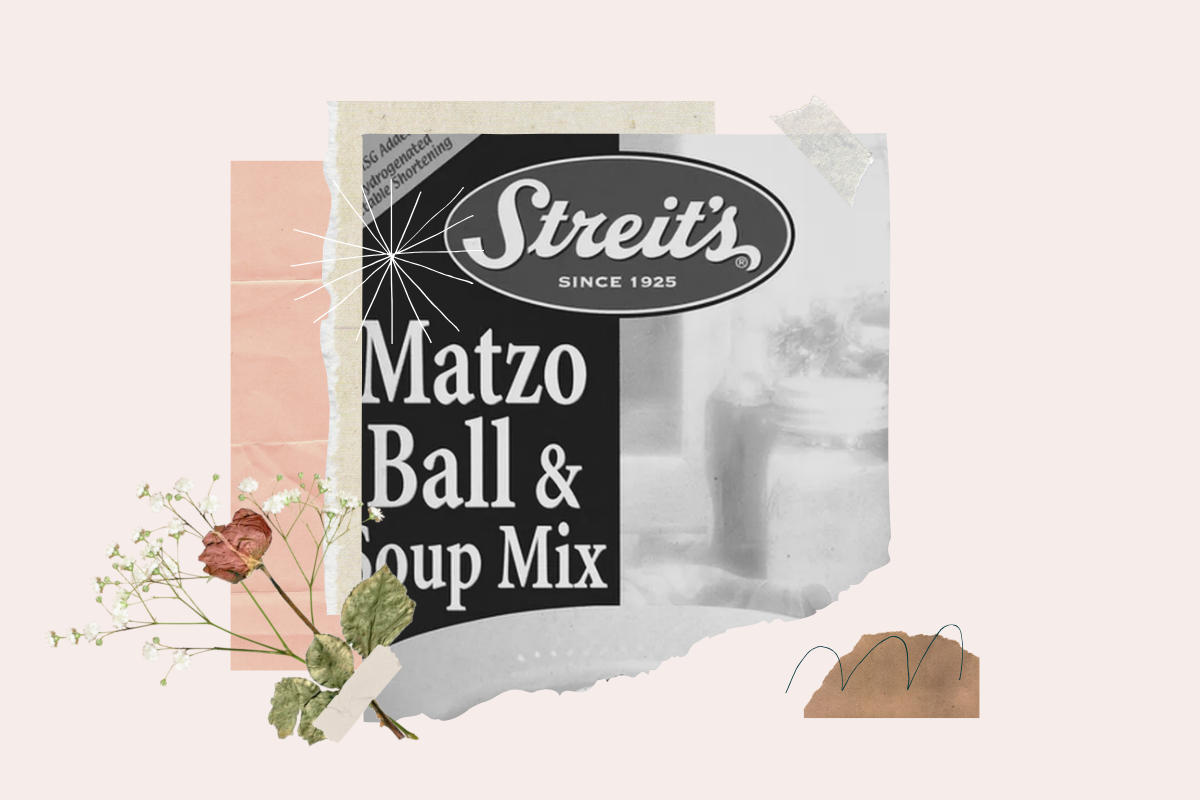As a single mom working as a teacher at a prestigious New York university, my mother rarely made home-cooked meals and we almost never sat at the dining room table — despite the fact that it was a beautiful, apparently expensive, vintage brand in dark wood which extended to a bigger size by pulling the lever underneath. But a few times a year, memorably on Yom Kippur and Passover, our little family of two would follow a special tradition.
I affectionately called my mother the queen of semi-prepared foods and heat-and-eat delicacies. I grew up fed by her, with the help of Zabar’s, Fairway and Citarella. Usually, we feasted on a roast chicken or prepared dish she had stood in line with her pink paper number waiting to order, which she served with string bean almondine or some kind of specially seasoned veggie. This was totally normal to me, and I never felt deprived of a fully home-cooked meal.
However, during Passover things were a bit different. She went all out for us. I fondly recall the Streit’s Matzo Ball soup mix front and center in the kitchen pantry. The dark blue box with white script lettering took center stage. Technically that meant her matzah ball soup wasn’t made from scratch, and yet her efforts were noticeable.
I watched from the doorway as she boiled the egg noodles, wiping her brow, overheated from our hot kitchen. She multi-tasked, meticulously peeling and slicing carrots, which were cut into perfectly smooth, small circles.
When it came time to make the matzah mix, she always asked for my help. We rolled the ingredients together between our fingers until it formed soft, little balls of the same size. Then she would shoo me away and take back over.
Parsley was chopped, fast and fine, and though she tended to be messy, each component of the soup was always organized and succinct. She made crispy roast potatoes, a recipe from one of her best friends. I have no idea what exactly went into them, but to this day, they’re still the best potatoes I ever tasted. Super crunchy, almost burned around the sides, yet soft inside, coated with the perfect amount of olive oil.
Everything was served on special, fancy plates from the top shelf pantry, which she needed a chair to access. The set was my grandmother’s, whom I never met. She died when my mother was only 25, and the plates and bowls — white with metallic gold lining — rarely made an appearance except on extra special occasions. They had matching cloth napkins, cream with gold trim, that I only ever saw on Jewish holidays.
I set the big dining room table, and candles were lit. Though there was no traditional seder or readings, my mom told me the abridged story of Passover as Broadway records played in the background. We laughed, listened to music and her matzah ball soup warmed my whole body.
As I got older, our special Passover dinners for two lessened, as did my mom’s level of preparation for the holiday.
When she died in May 2010 from an unexpected, fast-moving cancer resurgence, I put the remaining morsels of our tradition away like that vintage dinnerware and closed the door. I stayed away from every corresponding memory, from synagogue to Streit’s.
Then, a few years ago, looking towards the future, and missing those matzah balls more than usual, I yearned to unpack the long-stored memories. When April rolled around I purchased that old blue box with scripted letters. It had barely changed in over a decade and the simple, familiar packaging elicited comfort.
“I’m going to make us Passover dinner,” I announced to my husband, as if it were going to be some big affair, which it wasn’t. Just like before: a humble meal for two.
But inside that Streit’s box, I found more than just a matzah ball recipe. Everything about it reminded me of my mom, and as I prepared the soup it felt like I’d uncovered a lost memory of her. They simmered in the pot with egg noodles, and the smell reminded me of my childhood. The unforgettable scent wafted through my entire kitchen filling my heart with joy, and jolts of sadness.
I hadn’t cut the carrots quite like I remembered her doing it. And there was no small version of me looking up eager to help form the balls — not yet. I was alone in my preparation, though in some ways it felt like she was there with me, guiding all my motions.
The gold and cream trimmed plates had made the move to my own apartment long ago, still high up on an unreachable shelf. I asked my husband for help to bring them down. I don’t know what happened to the napkins. I had also kept mom’s wood dining room table, the same one that sat in our old apartment, used more for mail than meals.
As we laid out the Passover setting for our family of two, the memories of my mom’s semi-homemade love and effort came back, warming my heart all over again. The soup didn’t taste quite the same as hers, but was easy enough to make. Flavorful, with just the right amount of saltiness. She couldn’t be there with us, but I’d found a way to honor her, and create a new version of the holiday, with assistance from a box of Streit’s and a heaping serving of nostalgia.








